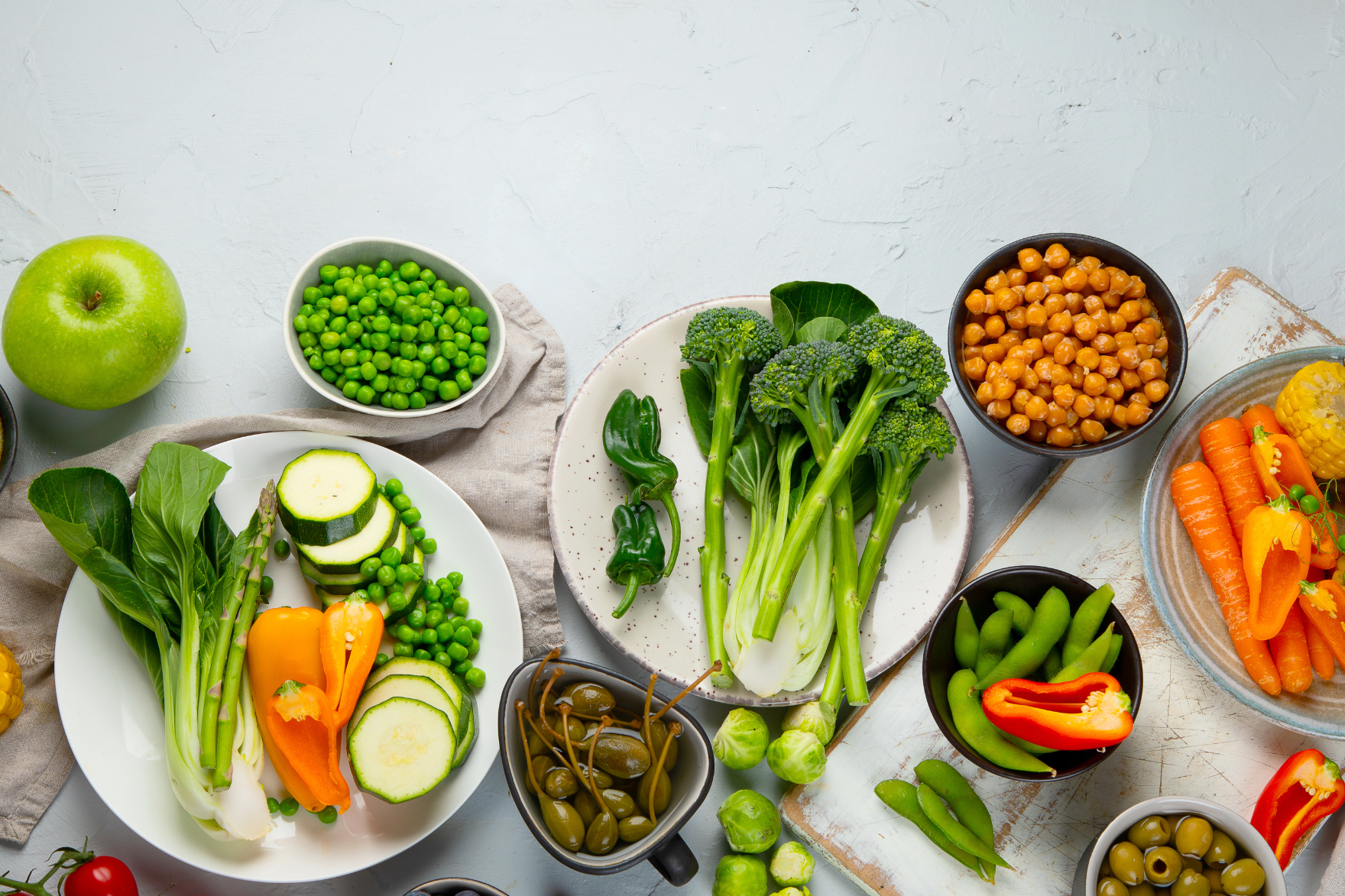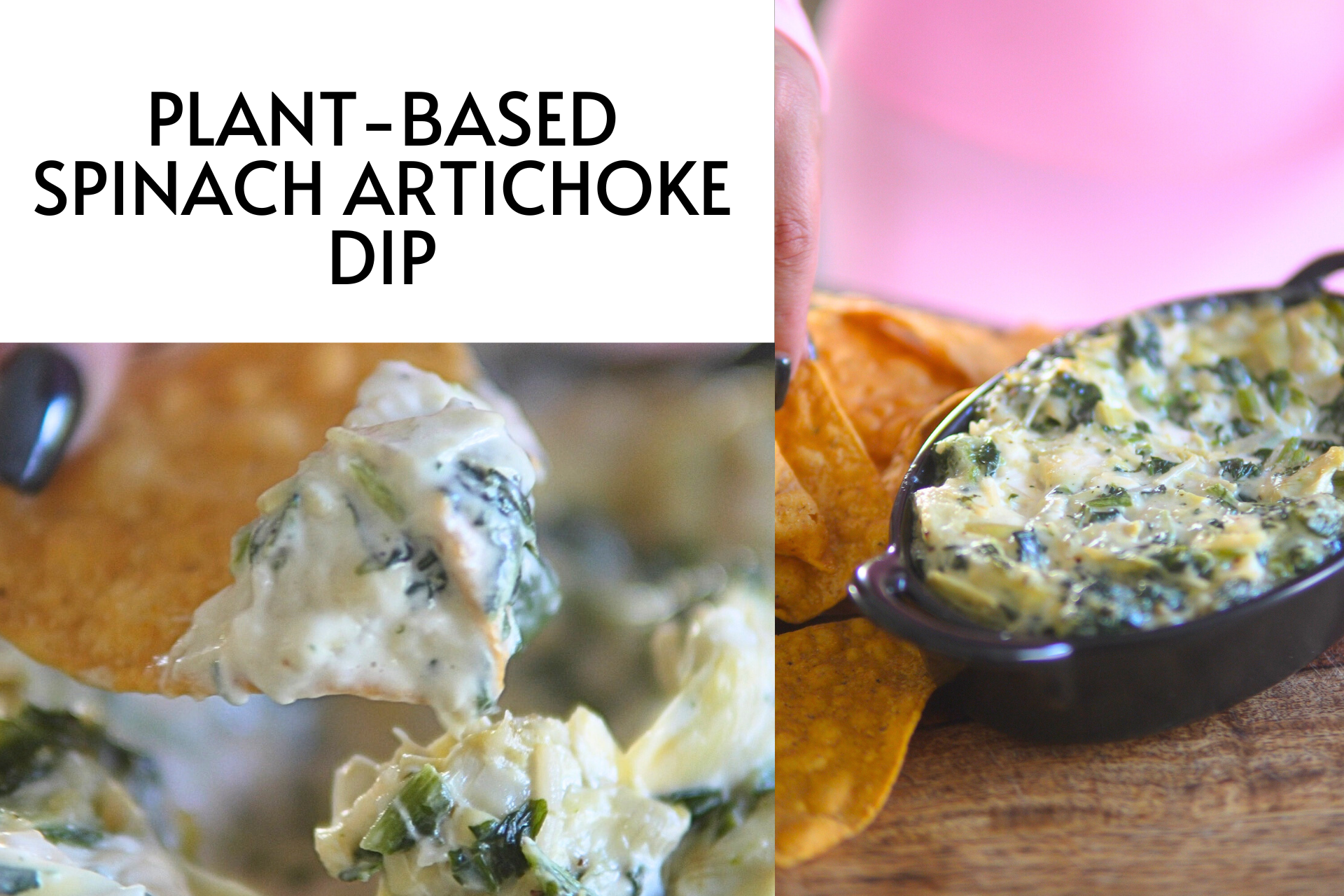If you’ve been curious about adopting a plant-based lifestyle, you’re not alone. With more people recognizing the health, environmental, and ethical benefits of eating more plants, the plant-based movement is growing rapidly. Whether you’re considering going fully plant-based or just want to incorporate more plant foods into your diet, this guide will answer all your burning questions and help you get started.
What Does It Mean to Be Plant-Based?
Being plant-based means focusing your diet on foods derived from plants, including fruits, vegetables, nuts, seeds, oils, whole grains, legumes, and beans. It doesn’t necessarily mean you have to give up all animal products, but the primary emphasis is on consuming more plant foods. I personally practice and believe in a plant-based vegan lifestyle, which combines both, but more on that later. People (myself included) choose to be plant-based for various reasons, including health benefits, weight loss/gain, environmental concerns, and ethical considerations.
Common Questions About Being Plant-Based
-
What is the difference between plant-based and vegan?
- Plant-Based: Primarily focuses on eating plant foods and may occasionally include animal products. It’s more about the proportion of plant foods in the diet, focusing on foods that are less processed.
- Vegan: Excludes all animal products, including meat, dairy, eggs, and honey. Veganism often extends beyond diet to a lifestyle choice that avoids animal products in clothing, cosmetics, and other areas.
-
What are the health benefits of a plant-based vegan diet?
- Lower Risk of Chronic Diseases: Studies show that plant-based diets can reduce the risk of heart disease, diabetes, and certain cancers.
- Weight Management: Plant-based diets are typically lower in calories and higher in fiber, which can help with weight loss and maintenance.
- Better Digestion: High fiber intake from plant foods promotes a healthy digestive system.
- Improved Mental Health: Some research suggests that plant-based diets can improve mood and reduce symptoms of anxiety and depression.
-
Can I get enough protein on a plant-based vegan diet?
Yes, you can! Plant-based protein sources include beans, lentils, chickpeas, tofu, tempeh, quinoa, nuts, seeds, and whole grains. By eating a variety of these foods, you can easily meet your protein needs.
-
Do I need to take supplements on a plant-based diet?
It’s is always best to consult with a healthcare provider to determine your specific needs, but all the nutrients you need can be found in plants. If you find that you have deficiencies in certain areas, you can supplement with a plant-based/vegan supplement, just as someone with no dietary preferences (i.e. a meat-eater) would!
-
How do I start a plant-based diet?
- Start Slowly: Gradually increase your intake of plant foods and decrease animal products.
- Plan Your Meals: Ensure you’re getting a variety of nutrients by planning balanced meals.
- Explore New Recipes: Try new plant-based recipes to keep your meals exciting and flavorful (I have loads on my Blog and Socials!).
- Find Support: I have helped thousands of women all over the country lose weight, build muscle, and gain their confidence back with a plant-based lifestyle! If you’re looking for support and 1 on 1 guidance, send me a message here.
-
Can I be plant-based and still eat meat?
Yes, you can! Being plant-based doesn’t mean you have to eliminate meat entirely. You can still include small amounts of meat or other animal products in your diet while focusing primarily on plant foods. This approach can help you reap the benefits of a plant-based diet without feeling restricted if you love meat (though there are some incredible plant-based mock-meat recipes out there like my Philly Cheesesteak Recipe!). The key is to prioritize plant foods and think of animal products as occasional additions rather than staples.
-
Can I have dairy and eggs if I’m plant-based?
Like meat, dairy and eggs can be included in a plant-based diet if you choose. Many people find they can enjoy the benefits of plant-based eating while still consuming these products in moderation. However, there are also plenty of plant-based alternatives to dairy and eggs, such as almond milk, soy milk, and flax eggs, for those who prefer to avoid animal products!
-
Is it expensive to be plant-based?
It doesn’t have to be! While some specialty plant-based products can be pricey, many staples like beans, lentils, rice, and seasonal vegetables are very affordable. Buying in bulk and planning your meals can also help you save money.
-
How do I handle social situations and dining out?
- Communicate Your Needs: Let friends and family know about your dietary preferences in advance.
- Research Menus: Look up restaurant menus beforehand to find plant-based options, you would be surprised how many there are!
- Be Flexible: Don’t stress if you can’t find a perfect plant-based meal. Choose the best option available and enjoy the company and experience, and don’t restrict!
-
Will I lose weight on a plant-based diet?
Many people find that they lose weight on a plant-based diet because it’s often lower in calories and higher in fiber, which helps you feel full longer. However, weight loss will depend on overall calorie intake and activity level. Focusing on whole, unprocessed plant foods and avoiding high-calorie, plant-based junk foods is key to achieving weight loss goals. I specialize in helping women lose weight with a plant-based diet, if you’re struggling with unwanted weight gain or retention, send me a message and I’ll get back in touch with information on my 1 on 1 program!
-
Can I build muscle on a plant-based diet?
Absolutely! Many athletes and bodybuilders thrive on plant-based diets. Consuming adequate protein from sources like beans, lentils, tofu, tempeh, quinoa, nuts, and seeds, combined with regular strength training, can help you build and maintain muscle mass.
-
What are some common challenges of going plant-based, and how can I overcome them?
-
- Cravings: Gradually reduce your intake of animal products and replace them with satisfying plant-based alternatives.
- Nutrient Concerns: Educate yourself on how to get essential nutrients from plant-based sources and consider supplements if needed.
- Social Pressure: Communicate your reasons for choosing a plant-based diet with friends and family and seek support from online communities.
-
What are some plant-based meal ideas?
-
- Breakfast: Smoothie bowls, oatmeal with fruits and nuts, avocado toast.
- Lunch: Quinoa salad with vegetables, chickpea wraps, lentil soup.
- Dinner: Stir-fried tofu with veggies, black bean burgers, stuffed bell peppers.
- Snacks: Hummus and veggie sticks, fruit and nut bars, roasted chickpeas.
-
Can children thrive on a plant-based diet?
Always consult a healthcare professional first, but yes, children can thrive on a well-planned plant-based diet! It’s important to ensure they get a variety of foods to meet their nutritional needs, including enough protein, healthy fats, vitamins, and minerals. Consulting with a pediatrician or dietitian can help ensure a balanced diet for growing kids.
-
How does a plant-based diet benefit the environment?
A plant-based diet has a lower environmental impact compared to a diet high in animal products. It reduces greenhouse gas emissions, conserves water, and decreases deforestation and habitat destruction. By choosing plant-based foods, you’re contributing to a more sustainable planet.
Conclusion
Embracing a plant-based lifestyle can be incredibly rewarding for the environment, and animal welfare, and of course your health! Whether you choose to go fully plant-based or simply increase your intake of plant foods, you’re making a positive impact. It’s not about perfection but about making mindful choices that benefit you and your health. Start where you are, make gradual changes, and enjoy the journey to a healthier, plant-based lifestyle! Send me a message if you want to chat about if a plant-based lifestyle is right for you!





